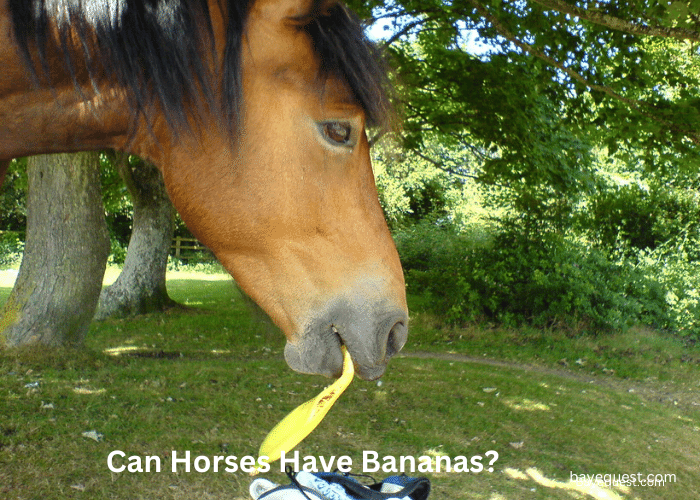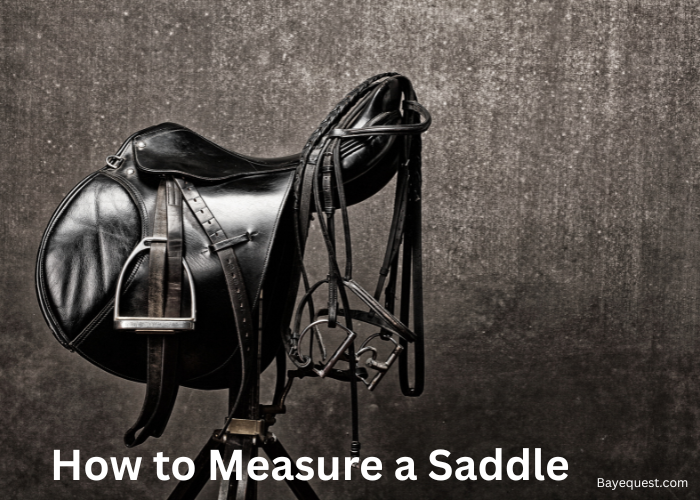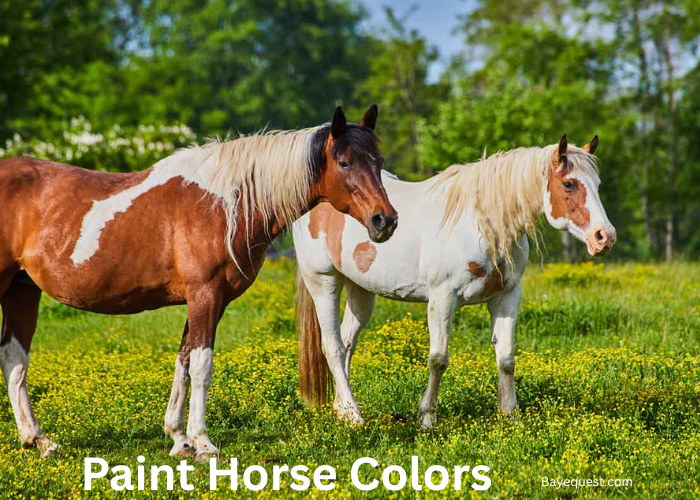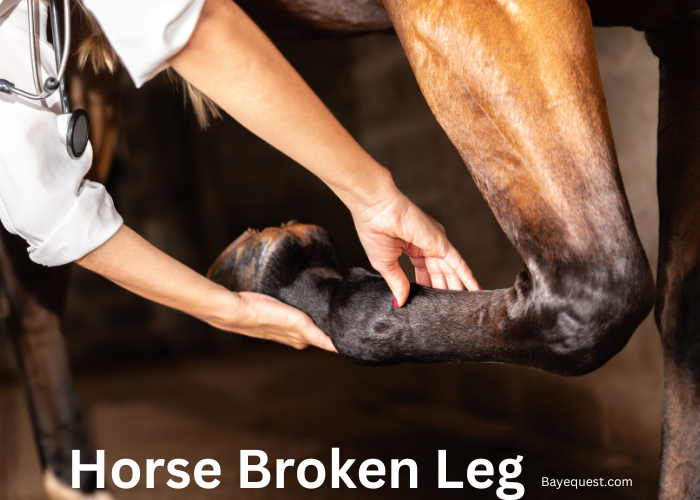Bananas are a favorite for many. But can horses enjoy them too? You might be surprised to learn that this tropical fruit isn’t just for humans.
Horses can munch on bananas, and they might even love the taste. But, there’s more to know before tossing one to your equine friend.
Are bananas safe? How much is too much? And what about the peel?
In this guide, we’ll break down the dos and don’ts. So, let’s dive into the world of horses and their curious taste for bananas.
Can Horses Have Bananas? Key Takeaway
Yes, horses can have bananas. Bananas are a safe and nutritious treat rich in potassium, fiber, and vitamin B6, which support energy and digestion. Horses can eat bananas with or without the peel, but always in moderation to avoid digestive upset. This fruit can also provide a quick energy boost, especially for active horses.
Are Bananas Good for Horses?
Yes, bananas are good for horses when given in moderation as part of a balanced diet. Here are some benefits of feeding bananas to horses.
Bananas are a good source of potassium, an essential mineral that helps in muscle function and maintaining fluid balance. They also provide vitamins like vitamin C, vitamin B6, and vitamin K, as well as manganese, biotin, and dietary fiber.
Bananas are soft and easily digestible when ripe, making them a good treat for horses, particularly older ones with dental issues.
Bananas are rich in natural sugars and can provide a quick energy source for horses, making them a nice treat before or after exercise. Many horses enjoy the sweet taste of bananas, making them useful for hiding medications or supplements.
Can Horses Eat Bananas?
Yes, horses can indeed eat bananas.
Bananas are not only safe for horses but also offer some nutritional benefits. They are rich in potassium, vitamins, biotin, and fiber, which can benefit a horse’s overall health. However, like any treat, bananas should be fed in moderation.
Bananas can be a tasty treat for horses, and many enjoy their soft, easy-to-chew texture. Remember to feed them peeled, as the peel can be difficult for horses to digest.
Gradually introduce any new food, including bananas, to ensure the horse has no adverse reactions.
Can Horses Eat Banana Peels?
Horses can eat banana peels, but there are several considerations to remember. Although banana peels are not toxic to horses, they are tougher and more fibrous than the banana. This could be harder for horses to digest.
If the bananas are not organically grown, their peels might also contain pesticide residues. Always wash them thoroughly before feeding.
When introducing banana peels to a horse’s diet, do so gradually to monitor for any digestive upset. Additionally, feeding banana peels should be done in moderation as part of a varied diet.
What Kind of Bananas Can Horses Eat?
Horses can eat most types of bananas that are available for human consumption. However, there are a few things to consider to ensure they are a safe and enjoyable treat:
Ripe bananas: It’s best to feed horses ripe bananas. These are easier for horses to chew and digest. Unripe bananas can be harder and contain more starch, which might be difficult for horses to digest.
Organic bananas. Organic bananas can be a safer option for horses, as they are less likely to contain pesticide residues. However, if organic bananas are not available, wash non-organic bananas thoroughly before giving them to the horses.
Peeled bananas. Always peel the bananas before feeding them to horses. The peels can be tough to digest and may contain pesticide residues. Some horses might also find the texture of the peel unappealing.
Banana varieties. While the common yellow Cavendish banana is the most readily available and typically fed to horses, other varieties like the smaller, sweeter Lady Finger bananas or the larger, starchier plantain can also be fed, provided they are ripe and peeled.
How Many Bananas Can a Horse Eat?
The amount of bananas they can eat for horses depends on their size and health.
A healthy adult horse can safely consume one to two bananas per day as a treat. However, for smaller horses or ponies, half a banana to one banana per day suits their smaller size and dietary needs.
When introducing bananas, always do so gradually to monitor how the horse reacts. Bananas should be considered a treat and not a major part of the horse’s diet due to their high sugar content.
How Do Bananas Benefit Horses?
Bananas offer several nutritional benefits that can be good for horses when included as a treat in a balanced diet. Here are the key benefits:
Potassium. Bananas are rich in potassium, an essential mineral supporting muscle function and cardiovascular health. It helps maintain proper fluid balance, which is crucial for a horse’s nerve and muscle function.
Vitamins. Bananas provide various vitamins, including vitamin C, which supports the immune system. It has vitamin B6, which is important for protein metabolism and the creation of neurotransmitters. It also has vitamin K, which plays a role in blood clotting.
Digestive health. The dietary fiber in bananas can help support digestive health by regulating the digestive process and preventing constipation.
Energy. Bananas’ natural sugars offer a quick energy source, making them a good treat for horses before or after exercise.
Biotin. Bananas contain biotin (vitamin B7), which benefits hoof health. Regular intake can contribute to stronger, healthier hooves.
Palatability and hydration. Their soft, moist texture makes bananas easy for horses, especially those with dental issues. Bananas also provide a small hydration boost due to their water content.
Nutritional Content of Bananas
Here’s a simple table highlighting the nutritional content of bananas:
| Nutrient | Amount per 100g |
| Calories | 89 kcal |
| Water | 75 g |
| Protein | 1.1 g |
| Carbohydrates | 22.8 g |
| Sugar | 12.2 g |
| Fiber | 2.6 g |
| Fat | 0.3 g |
| Potassium | 358 mg |
| Vitamin C | 8.7 mg |
| Vitamin B6 | 0.4 mg |
| Vitamin A | 3 µg |
| Magnesium | 27 mg |
| Iron | 0.3 mg |
| Calcium | 5 mg |
Preparing Bananas for Horses
When preparing bananas for horses, do so in a way that is safe and enjoyable for them. Here are some tips on how to properly prepare bananas for your equine friends:
Choose ripe bananas. Opt for bananas that are ripe but not overly mushy. Ripe bananas are easier for horses to chew and digest. Avoid unripe bananas as they are harder and have higher starch content.
Peel the bananas. Always peel the bananas before feeding them to your horse. Banana peels are tough and not easily digestible by horses. Although some horses might eat the peels without issue, they can pose a risk of intestinal blockage.
Cut into pieces. Although horses can handle large chunks of banana, cutting the fruit into smaller pieces is safer. This can prevent choking hazards, especially for older horses or those with dental issues.
Mash for older horses. For older horses with dental problems, mashing the banana can make it easier to eat and digest. Mashed bananas can also be mixed with their regular feed to enhance palatability and ensure they are well consumed.
Monitor quantity. While bananas are a healthy treat, they should be given in moderation due to their sugar content. One to two bananas per day is sufficient for a regular-sized horse, while smaller horses or ponies should get no more than one banana per day.
Use as a supplement carrier. If your horse is reluctant to take medications or supplements, hide these in banana pieces or mashed bananas.
Introduce gradually. As with any new food, introduce bananas gradually into your horse’s diet to ensure they don’t have any adverse reactions.
How to Feed Bananas to Horses
To feed bananas to horses, start by selecting ripe bananas that are soft enough to chew and digest easily but not overly mushy. Always remove the peel, as it can be difficult for horses to digest. It may also contain pesticide residues, particularly if not organically grown.
You can either slice the bananas or mash them, depending on your horse’s preference and any dental issues it may have. Feeding bananas in slices is straightforward and can be done by hand.
Mixing the banana into the horse’s regular feed may be a better option for older horses or those with poor teeth.
Introduce bananas slowly into their diet to monitor for any digestive disturbances. Remember, bananas are a treat, not a staple of their diet.
The Role of Fruits in a Horse’s Diet
Fruits play a supplementary role in a horse’s diet. Here’s an overview of the role of fruits in a horse’s diet:
Nutritional boost. Fruits are rich in vitamins, minerals, and antioxidants that complement the horse’s primary diet.
Hydration. Many fruits have high water content, which helps hydrate horses.
Digestive health. The fiber in fruits aids in digestion and can help maintain bowel regularity. This benefits horses, as a well-functioning digestive system is crucial for their overall health.
Behavioral enrichment. Offering fruits as treats can be used as a training aid, reward, or to provide variety and enrichment in a horse’s routine.
Palatability. Fruits can enhance the palatability of a horse’s diet, making it easier to introduce new feeds or medications. Mixing fruits into feed is a common practice to encourage horses to eat their full ration.
Amazing Facts About Bananas and Horses
Bananas and their relationship with horses offer some interesting and amazing facts that many might not know. Here are a few to consider:
1. Bananas are one of the few human foods that are naturally safe and healthy for horses to eat as a treat.
2. Many horse owners prefer to feed only the banana’s flesh, but horses can also eat the peel. However, wash the peels well to remove pesticide residues if the bananas are not organically grown.
3. Bananas are an excellent source of potassium. This is vital for muscle health and the proper functioning of the nervous system in horses.
4. Horses generally find bananas very palatable. This makes bananas useful for masking the taste of medicines or supplements when mixed into their regular feed.
5. Bananas contain biotin (Vitamin B7), essential for horses’ healthy hoof growth.
6. Bananas have very low sodium content, making them an excellent treat choice for horses on a low-sodium diet or those with certain health conditions where sodium intake must be monitored.
7. The dietary fiber in bananas helps support healthy digestion in horses, aiding in smoother gastrointestinal function.
8. Due to their high sugar content, bananas provide a quick energy source, making them a good snack for horses before or after intense physical activities.
Can Eating Too Many Bananas Make Your Horse Unwell?
Yes, eating too many bananas can indeed make a horse unwell. While bananas are a healthy treat when fed in moderation, they contain high sugar levels.
Here are some of the potential issues that can arise from overfeeding bananas to horses:
1. Bananas are high in natural sugars, which can be a problem for overweight, insulin-resistant horses or prone to metabolic disorders. High sugar intake can exacerbate these conditions and lead to serious health issues.
2. While bananas’ fiber is good for a horse’s digestive system, consuming large quantities can lead to gastrointestinal issues. Horses’ digestive systems are designed to handle a high-fiber diet of grasses and hay.
3. Feeding a horse too many bananas can lead to an imbalance in their diet. This crowds out other necessary nutrients and forage.
4. Over time, bananas’ high sugar content can contribute to dental problems, such as tooth decay or gum disease.
Are Bananas High in Sugar for Horses?
Yes, bananas are relatively high in sugar content, which is an important consideration when feeding them to horses. A medium-sized banana contains about 12 to 14 grams of sugar.
This natural sugar provides a quick energy source but can contribute to several issues if not managed properly in a horse’s diet.
Excessive sugar intake can lead to weight gain for horses, particularly those not engaged in heavy exercise, and may exacerbate conditions like insulin resistance, Equine Metabolic Syndrome, or laminitis. These conditions require careful dietary management to prevent health complications.
Therefore, while bananas can be a healthy treat due to their vitamin and mineral content, they should be in moderation.
Risk and Potential Dangers of Feeding Bananas to Horses
While bananas can be a nutritious treat for horses, there are several risks and potential dangers associated with feeding them that owners should be aware of:
High sugar content. Bananas are rich in natural sugars, which can pose a risk to horses.
Digestive issues. Although generally easy to digest, banana fiber can cause gastrointestinal upset if fed in large quantities.
Nutritional imbalance. Relying too heavily on fruits like bananas can lead to an imbalance in the horse’s diet. Horses require various nutrients that must be carefully balanced, particularly minerals and vitamins.
Pesticide exposure. If the bananas are not organic, there’s a potential risk of pesticide exposure from the peels.
Choking hazard. Large pieces of banana can pose a choking hazard, especially for horses that tend to gulp their food. Cutting the banana into manageable pieces is important, particularly for older horses or those with dental issues.
Horses Who Shouldn’t Eat Bananas
While bananas are safe, there are certain conditions under which horses should not eat bananas. Here are some types of horses for whom bananas might not be an appropriate treat:
Horses that suffer from conditions like insulin resistance and Equine Metabolic Syndrome (EMS). Bananas’ high sugar content can exacerbate these conditions, leading to serious health complications.
For overweight horses, managing calorie intake is crucial. Bananas, high in sugars, contribute extra calories that can hinder weight management efforts.
Horses affected by Hyperkalemic Periodic Paralysis need to regulate their potassium intake. Bananas are high in potassium, which can trigger episodes in horses with this condition.
Although bananas are soft and generally easy to chew, horses with severe dental issues may still find them difficult to eat. For these horses, even mashed bananas might need to be assessed based on their ability to chew and swallow comfortably.
If a horse has a sensitive digestive system or a history of colic, introducing a new food item such as bananas should be done with caution.
Other Fruits and Vegetables Safe for Horses
Horses can enjoy a variety of fruits and vegetables as part of a balanced diet. Here’s a list of some other safe options besides bananas:
- Apples
- Pears
- Oranges
- Strawberries
- Watermelon
- Lettuce
- Pumpkin
- Seedless grapes
- Celery
- Cucumbers
- Zucchini
- Carrots (Read more about horses eating carrots in our other guide.)
Adverse Reactions of Bananas on Horses
Here are some potential adverse reactions that horses might experience from eating bananas:
- Digestive upset (bloating, gas, diarrhea)
- Weight gain
- Exacerbation of sugar-related health issues (insulin resistance, Equine Metabolic Syndrome, laminitis)
- Hyperkalemia (high potassium levels in the blood)
- Allergic reactions (hives, itching, skin reactions)
FAQs
How often can I feed my horse bananas?
Bananas should be fed as a treat, not as a main component of your horse’s diet. Feeding your horse one to two bananas a few times a week is safe and ensures that their overall diet remains balanced and varied.
How do I store and handle bananas for my horse?
Store bananas at room temperature until they are ripe. Once ripe, they can be kept in a refrigerator to slow further ripening. The peel may turn brown, but the fruit inside will stay fresher for longer. Always peel bananas before feeding them to your horse, and cut them into appropriate sizes to prevent choking.
Can horses eat bananas and honey?
Yes, horses can eat bananas and honey, but both should be given in moderation due to their high sugar content. While honey isn’t a natural part of a horse’s diet, a small amount can be used as an occasional treat.
Can Horses Eat Banana? Conclusion
Can horses have bananas? Absolutely. Just remember, like any good treat, moderation is key.
Bananas are packed with nutrients that can be great for your horse but are also sweet. Treat your horse to a banana occasionally, and you’ll have a happy camper.
Keep it peeled, chopped, and in small amounts to keep things safe and fun. Whether it’s a reward after training or just because a banana can be a sweet little secret between you and your horse.
Always check with your vet if you’re unsure, and here’s to enjoying this simple pleasure with your four-legged friend. Also, check out our article, “Do Horses Eat Watermelon?” to learn more about its benefits, potential risks, and how to introduce this refreshing treat into your horse’s diet safely.








